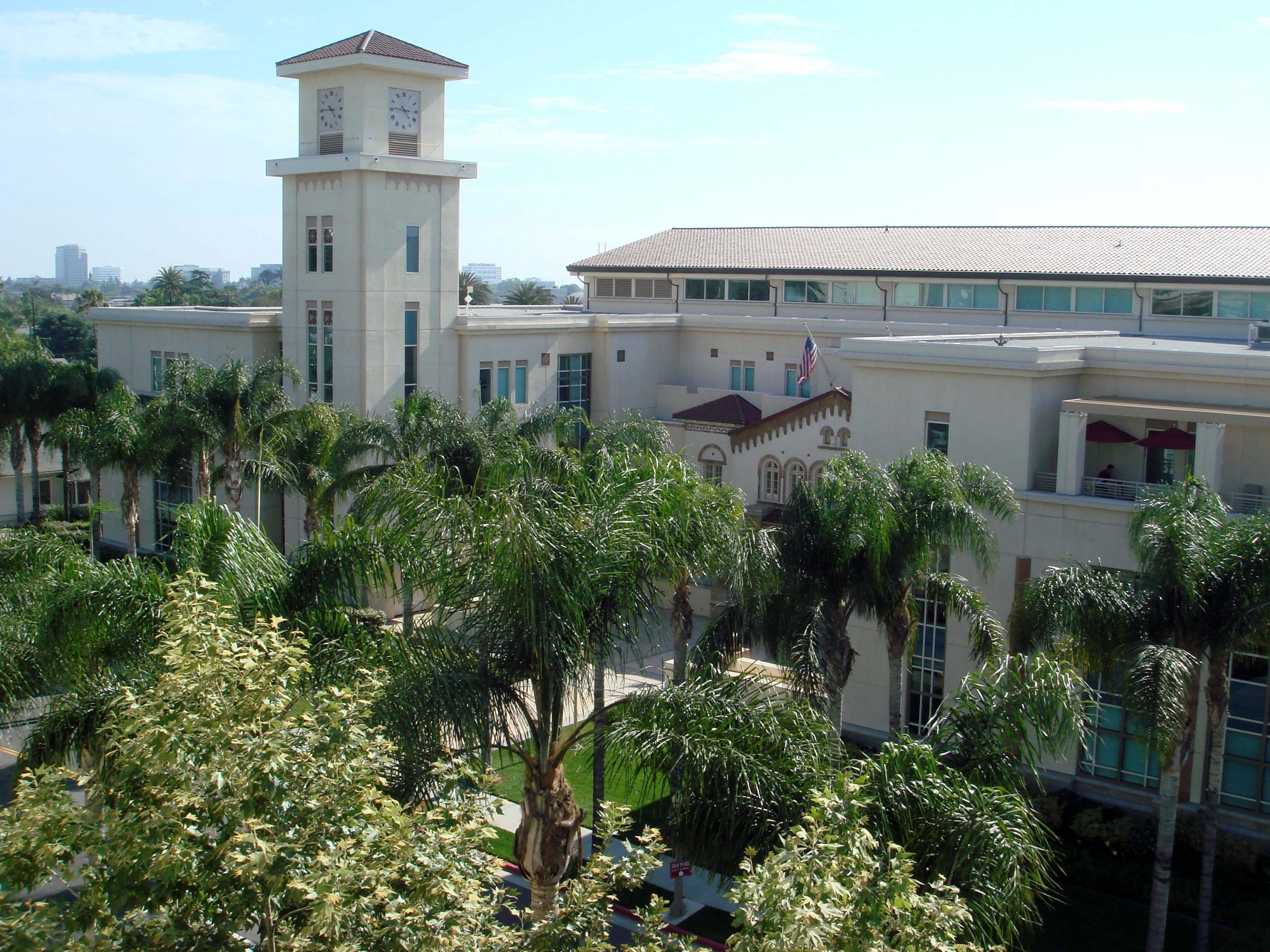It has been said that Latin is dead. Truth be told, so is that fern on my porch after a week of scorching heat. But what is very much alive is the love for the Italian culture and language. And no where is this more apparent than in the classroom of Chapman University’s Professor Federico Pacchioni.
On a warm September morning, I drove up to visit him. After driving past the ever so charming Orange circle, lined with antique stores and coffee shops, I arrived on campus and soon entered the classroom where the coolness of an air conditioner greeted me, and found students dressed in shorts, t-shirts, and jeans awaiting their class to start. Moments later, the professor, with dark curly hair and a kind smile, walked in.
Raised in the cities of Cesena and Modena and educated here and overseas, Professor Pacchioni has for the last few years brought his love for both teaching and his native country to Orange County. In addition to building the Italian program, the professor has also authored a book about the brilliant director, Federico Fellini, entitled Inspiring Fellini: Literary Collaborations behind the Scenes.
In the book, the professor talks about Fellini’s relationship with his screenwriters, dives into Fellini’s extraordinary world, and looks at those who have inspired the legendary director. Now working on his second book about Italian puppets, Pacchioni himself spends many days and evenings inspiring others while teaching a whole new generation about the Italian culture, arts and language. “I wanted to be a bridge between two cultures,” the professor told me. That bridge would come in the form of Italian studies which was created as a minor four years ago. Today, the program is flourishing with about three hundred students taking Italian classes each year.
Another major component of the program is the Italian Council which as the professor says “collaborates with the Italian faculty and students to promote the teaching and learning of Italian.” Mrs. Vicky Carabini, the Council’s chair and a pillar of the Italian community, informed me about the council’s primary goals: “The Italian studies council is a non-profit college initiative whose goal is to benefit the teaching and learning of the Italian studies. Moreover, the tradition of community service is inspired by the generosity of the many individuals such as Sebastian Paul and Marybelle Musco, whose love for the Italian language and culture led them to develop the Musco Endowed Chair in Italian studies.”
Thanks to the efforts of such individuals and many more throughout the community, students are further able to experience, in addition to their scholastic studies, events organized by the Italian club, and have access to the Italian Heritage archive and group study room at the Leatherby Library. One such student is Sabrina Chapman, whose family hails from the south of Italy. She hopes one day to pursue film in Italy and as she quotes, “be fluent enough to blend in when I go back to Italy.”
Perhaps what is most exciting is the admiration and passion for la vita Italiana that the program instills. As with any culture in America, with time and assimilation, the language and traditions often tend to dilute and dissipate. Professor Pacchioni is working hard not to have that happen. Not only is he keeping the Italian spirit alive, but most importantly, he is also making the learning of Italian and its culture a practical and viable choice for students. He does so in two ways. One is to adjust to a student’s particular major while the second is to create such a heightened interest that the students will want to visit and perhaps continue to work or be affiliated with Italy in some professional way: “We encourage a relationship between their passions and to develop a love of Italy;” the professor stated. “We adjust to their particular interest.”
This flexibility attracts students such as senior Steven Porfiri. With his great grandfather from Sarnano, and having visited places such as Rome and Florence, Steven, who majors in screenwriting, told me it would be “wonderful if RAI would be interested in having an American writer for their programming.”
That passion, ignited within these classes, is exactly what the professor ultimately hopes for. Back at Chapman, I sat next to junior Brian Clemens, a music major who loves the Italian culture and finds the language helpful for music terminology. There, I could see how the professor’s hopes and goals were put into action. In class, not only did the professor speak only in Italian, but he made the class appealing and interactive to the younger generation. We enjoyed listening to the singer and rapper, Jovanotti, and watching a video of two good looking Italians converse with one another. This was not the boring classes I remember where I spent the hours learning about Passato Remoto.
After practicing dialogues with Brian, I told him at the end, “Bravo. Sei Bravo,”. The tall young man smiled and put on his backpack. “So, are you Italian? Sei Italiana?” he asked me. No, I was not Italian, nor was he. And yet, on that September morning as we learned about this wonderful country’s regions, art and cuisine, and listened to the lyrical sound of la lingua Italiana, we both knew that what mattered most was not so much our origins, but what we took away- that kernel of passion and love for Italy was that day’s greatest lesson.
For updates on upcoming events and news from Chapman Italian Studies visit: http://sites. chapman.edu/pacchioni




























